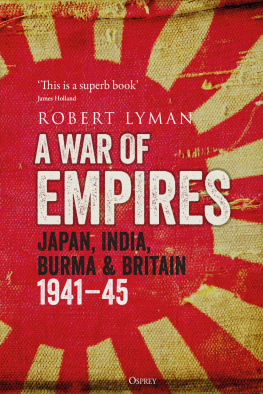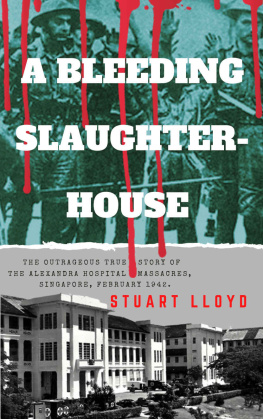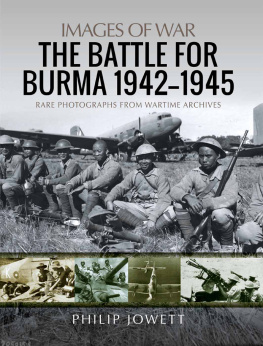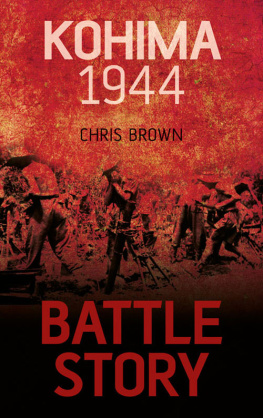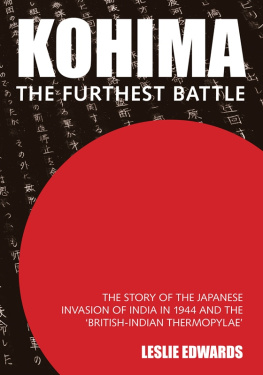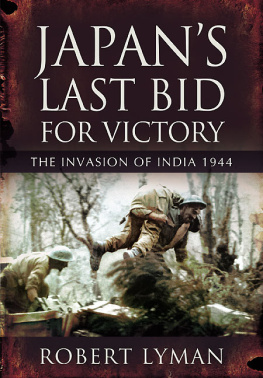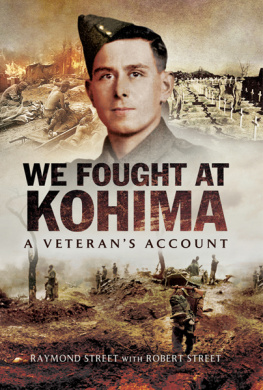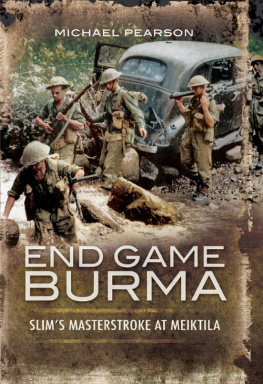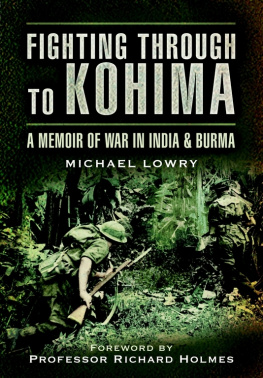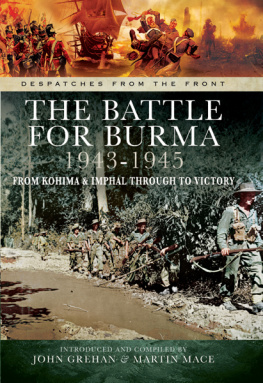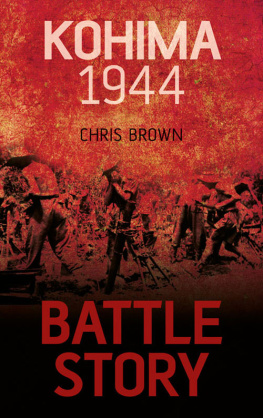First Published in Great Britain in 1994, reprinted in 1995.
Published in 2003, reprinted 2005 and 2012 in this format by
PEN & SWORD MILITARY
an imprint of
Pen and Sword Books Limited,
47 Church Street, Barnsley,
SouthYorkshire. S70 2AS
Copyright John Colvin, 1994, 1995, 2003, 2005, 2012
9781781594308
The right of John Colvin to be identified as Author of this work has
been asserted by him in accordance with the Copyright,
Designs and Patents Act 1988.
A CIP catalogue record of this book is available from the
British Library
All rights reserved. No part of this publication may be
reproduced, stored in a retrieval system, or transmitted, in
any form or by any means, electronic, mechanical,
photocopying, recording or otherwise, without the prior
permission in writing of the publishers.
Printed and bound by
CPI Group (UK) Ltd, Croydon, CR0 4YY
Pen & Sword Books Ltd incorporates the Imprints of Pen & Sword
Aviation, Pen & Sword Maritime, Pen & Sword Military,
Wharncliffe Local History, Pen & Sword Select, Pen & Sword Military
Classics, Leo Cooper, Remember When, Seaforth Publishing and
Frontline Publishing
For a complete list of Pen & Sword titles please contact
PEN & SWORD BOOKS LIMITED
47 Church Street, Barnsley, South Yorkshire, S70 2AS, England
E-mail: enquiries@pen-and-sword.co.uk
Website: www.pen-and-sword.co.uk
ACKNOWLEDGEMENTS
My most particular thanks are due to John McCann, formery 1st 18th Lancashire Fusiliers, for permission to quote extensively from his superb trilogy, Kohima, Return to Kohima and Echoes of Kohima.
I thank also Norman Havers ( March On ), David Rooney ( Burma Victory ), and the incomparable late Harry Seaman. Of those participating in the battle, I am especially grateful to Derek Horsford, David Wilson, Donald Easten, John Wright, Harry Smith, Peter Steyn, Gordon Graham, Jimmy Patrick, Stephen Laing, John Winstanley, Peter Franklin, Thomas Hogg and Masao Hirakubo. The Imperial War Museum (Rod Suddaby), the Public Records Office and the National Army Museum have given unstinting help and support.
PREFACE
ON AN April evening in 1993 sixty elderly men met for dinner at Maidstone in the drill hall of a Territorial Army Regiment. They, and their comrades who were gone, had been meeting in this fashion for forty-six years to commemorate events that had occurred in 1944. There had never been many of them, and nine more had died since they had last met.
In this green, functional room they ate a proper Army curry-and-rice with grated coconut, peanuts, peach slices, banana, pickled eggs and plenty of currants. They sat on red plastic and metal chairs drinking beer at six-foot tables, surrounded by box-horses and wall-bars which they were certainly too old to exploit. But on the walls hung the gold cross on white ground of Montgomerys Eighth Army, the fern leaf of Freybergs Second New Zealand Division to which they had been temporarily attached and which Rommel considered the best Allied formation in the Desert War. Here, closer to home, were the Red Ball of Fire and Gold Arrow of Briggss and Messervys Fifth and Seventh Indian Divisions, the shields of Stopfords XXXIII Corps, their own Slims XIV Army, and the red-white-and-blue Phoenix of Mountbattens South East Asia Command.
Although some wore suits and one a leather jacket, most of the men were in dark blue blazers with the White Horse on the pocket, and grey flannel trousers. They had been, those not disabled, artisans carpenters, electricians, plumbers, builders, tradesmen, labourers, minor civil servants, simple but not humble men. So were those younger veterans who, although not touched by their experience, were permitted to join them. They looked very ordinary, the old soldiers, neat, average, solid, mostly bespectacled, distinguished only by rather straight backs and an eerie, unspoken community. Later that night, on the railway station, they sang and shouted in the beery volume they would have used fifty years ago.
One of the men said to me, We couldnt have survived without the officers. Right from the start, we never had a bad officer. One of the officers said, We could never have done it without the men. It was the men who did it, the NCOs and privates. Both spoke flatly, as fact, without emotion.
They were not ordinary. They were the 4th Battalion of The Queens Own Royal West Kent Regiment. Their motto was Invicta, the Unconquered. They held the line against the Japanese at Kohima, the most terrible battle of the Second World War. They were the inheritors of those Greeks killed to a man at Thermopylae with their commander, Leonidas, of whom Simonides wrote nearly two thousand five hundred years ago:
Go tell the Spartans, thou who passest by,
That here obedient to their laws we lie.
Peoples do not change. The Japanese today retain their virtues of tenacity, reach and forethought, although blind heroism is, fortunately, no longer suited to their strategies, and stupidity is anathema.
The British are not absorbent, not punchbags nor sandbags, not cannon-fodder, although they can sometimes hold a defensive line and sometimes not, retreating as in the Far East in gross non-combatant if seldom combatant disgrace. They are, on the contrary, when roused from lethargy, a barbaric people.
The common denominator of early defeats in the Second, if not the First, World War was lack of military preparation, the consequences of an overstretched Empire, a declined economy and the preferred intellectual posture of the ostrich. These attributes, whether material or psychological, formed the marshes in which the British soldier, ill-equipped and often inappropriately trained, first had to fight. It is surprising, in Burma as in North-West Europe, that he was as good as he was; at least, he was nearly always brave, and without any Shinto or Prussian ideological truss.
Nations are congeries of people, either of diverse races or of common descent, language, history and geographical limits. The former for a brief period was also a definition of the Empire, and the latter defined the United Kingdom itself until 1945, but no longer. The unity of the first was greatly aided by its armies, especially the Indian Army, in John Keegans words the most durable and perhaps the most remarkable of Britains imperial creations.
The unity of the United Kingdom itself was provided by arrangements between its various races, English, Scottish, Welsh and Irish, the Kingdoms history thus leading to the Kingdoms constitution and customs, which in their turn subsumed the Empire and its armies. And the executors, leaders and inheritors of that bloody and ancient structure were the leaders of nation and empire, whether from Shrewsbury, Fort William, Carmarthen or Armagh. They were seldom soldiers, usually farmers, small merchants, lawyers, people like that, once called, with respect but not veneration, the middle class. They knew that the preservation, let alone expansion, of Empire was doomed and did not care much about it anyway. But, although without great windy causes, neither were they fighting especially in Burma only for Hearth and Home. They, and those whom they led, and who followed them, are among the subjects of this book.


